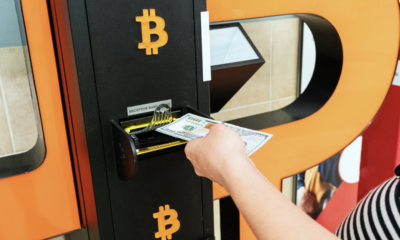Cryptocurrency
Trump Pardons Silk Road Founder Ross Ulbricht, Sparking Controversy
Donald Trump pardoned Ross William Ulbricht, the founder of the notorious Silk Road marketplace. Ulbricht, 40, was serving a life sentence without the possibility of parole after his 2015 conviction on charges including narcotics distribution and money laundering. The decision has reignited debates about justice, cryptocurrency, and the limits of presidential pardon power.
Who is Ross Ulbricht?
Ross William Ulbricht, known online as “Dread Pirate Roberts,” created Silk Road in 2011. This dark web platform allowed anonymous Bitcoin transactions and facilitated the sale of illicit drugs, counterfeit documents, and hacking tools. According to federal prosecutors, over its three-year lifespan, Silk Road generated over $200 million in revenue from more than 1.5 million transactions.
Ross William Ulbricht was arrested in 2013 and accused of operating the site and soliciting murders to protect his empire—though no evidence of these killings was found. His supporters argue that his sentence was unduly harsh, given that other non-violent offenders in similar cases received significantly lighter punishments.
Why Did Trump Pardon Ross Ulbricht?
Trump’s decision to pardon Ross Williams Ulbricht aligns with his campaign promises to challenge what he described as a “weaponized government.” In a Truth Social post announcing the pardon, Trump called Ulbricht’s conviction a product of political corruption, directly criticizing the prosecutors involved.
Bitcoin Hits $100,000: Trump’s Pro-Crypto SEC Pick Fuels Market Surge
The move also reflects the influence of the cryptocurrency industry. Ulbricht is a cult hero among crypto enthusiasts, who view Silk Road as a pioneering use of Bitcoin. For years, the slogan “Free Ross” has been a rallying cry at blockchain conferences and online forums. The crypto community, which reportedly contributed over $100 million to Trump’s re-election campaign, significantly advocated for Ulbricht’s release.
Support and Criticism
Many libertarians and Bitcoin advocates praised the pardon, arguing that Ulbricht’s actions demonstrated the potential of decentralized systems rather than warranting lifelong incarceration. “It’s hard to argue that Ross Ulbricht wasn’t the most successful and influential entrepreneur of the early Bitcoin era,” said Pete Rizzo, editor at Bitcoin Magazine. Supporters emphasize that Ulbricht’s actions primarily revolved around creating a platform, not directly committing violent crimes.
Critics, however, view the pardon as a dangerous precedent. Legal experts and law enforcement officials argue that Ulbricht’s pardon undermines accountability for those who profit from illegal activities. They highlight the substantial harm caused by the drugs sold on Silk Road and question whether the pardon signals leniency for similar offences in the future.
The pardon marks a controversial chapter in the Silk Road saga, reigniting debates about justice in the digital age. While supporters see Ulbricht as a visionary caught in a harsh legal system, detractors argue that his platform enabled widespread harm.
As the cryptocurrency world celebrates reclaiming one of its own, questions linger about the broader implications of this decision for justice, technology, and governance. For now, Ross Ulbricht’s story shifts from a prison cell to a newfound chapter in freedom, leaving a divided public to grapple with its meaning.









































